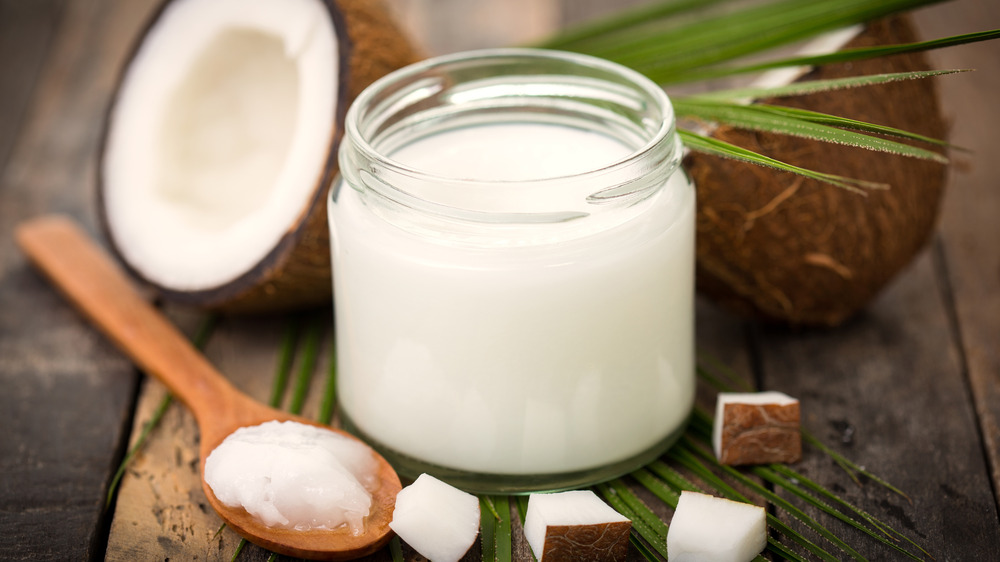Coconut Oil Vs Olive Oil: Which One Is Better For You?
Coconut oil has risen in popularity in recent years and has even been touted as a healthier alternative to olive oil. But does that claim really hold up? Both olive oil and coconut oil contain the same amount of calories and grams of fat per tablespoon (via Livestrong). However, there are distinct differences in the types of fats the two oils contain. Around 25 percent of the fat in olive oil is unsaturated fat, specifically monounsaturated fat.
Monounsaturated fats are recognized as healthy, heart-friendly fats that can lower your levels of LDL, or bad cholesterol, and reduce your risk of heart disease. Coconut oil on the other hand, contains mostly saturated fat, which can increase both LDL cholesterol and the risk of heart disease. "Between the two, olive oil is a better choice, since monounsaturated fats can have a beneficial effect on your heart when eaten in moderation and when used to replace saturated and trans fats in your diet," Annessa Chumbley, a registered dietitian and spokeswoman for the American Heart Association, told the New York Times.
When to use coconut oil and olive oil
While olive oil may be healthier for your heart, that doesn't mean that coconut oil is necessarily bad for you or that it shouldn't be used. Coconut oil and olive oil both have their own advantages and disadvantages. Although coconut oil is linked to higher levels of LDL cholesterol, it can also increase HDL, or good cholesterol (via the New York Times). That's because coconut oil contains lauric acid, which doesn't influence the risk of heart disease as much as other saturated fatty acids. Coconut oil is also a healthier and more flavorful alternative to butter and works well with baked goods. Olive oil, on the other hand, is better suited as a food seasoning or salad dressing (via Livestrong).
While coconut oil and olive oil can both be used to cook meats and vegetables, it's important to note that the two oils have different smoke points. A smoke point is the temperature at which an oil starts to smoke. Since coconut oil has a higher smoke point than olive oil, it will begin to break down at a higher temperature. This means that coconut oil is better for cooking at higher temperatures, while olive oil is better for cooking at lower temperatures.


